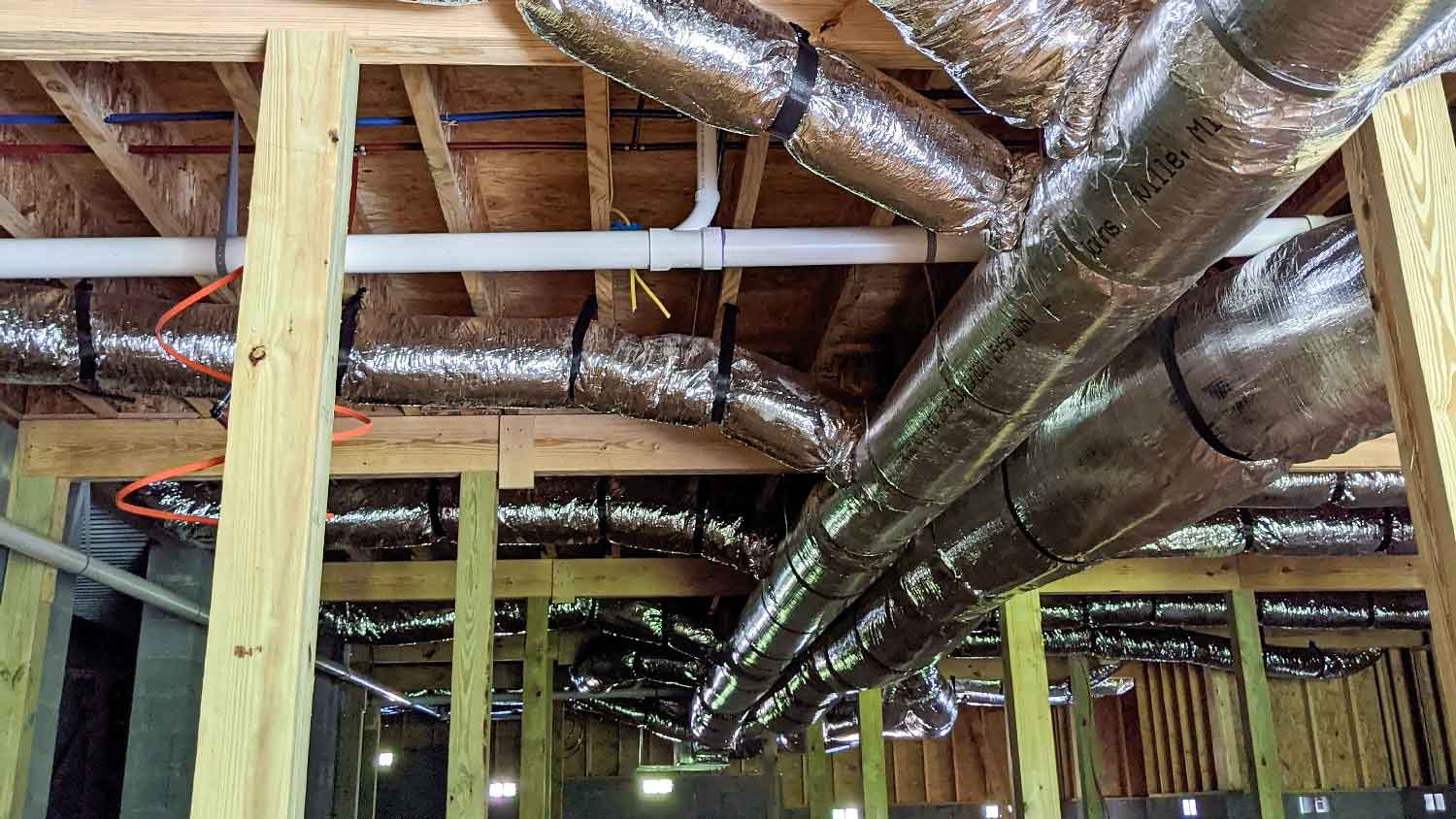
Discover the cost to install ductwork. Learn about average prices, cost factors, and tips to save money on your ductwork installation project.
Heating and air conditioning service costs depend on your project and location. Check with a local pro for your specific job.
You should leave room in your budget to hire a licensed AC professional, which is required in Washington, D.C.
Your contractor will need to get a permit for your AC replacement, which costs $65.
In Washington, D.C., having a well-maintained HVAC system—including cooling and heating—can increase your home’s value.
The average AC replacement cost in Washington, D.C., is $6,190, but homeowners in our nation’s capital commonly pay between $4,597 and $8,395 for a new air conditioner, depending on the size, type, and efficiency of the AC unit.
Since Washington, D.C., is a higher-cost-of-living area, replacing an AC unit here is more expensive than it is in many other parts of the country. However, in the District’s hot and humid summers, the last thing you want is to get stuck without a working air conditioner. Here’s what you can expect to pay for a new AC in D.C.
Several factors influence the price of AC replacement in Washington, D.C., including the type and size of the AC unit, its energy efficiency rating, and the layout of your home.
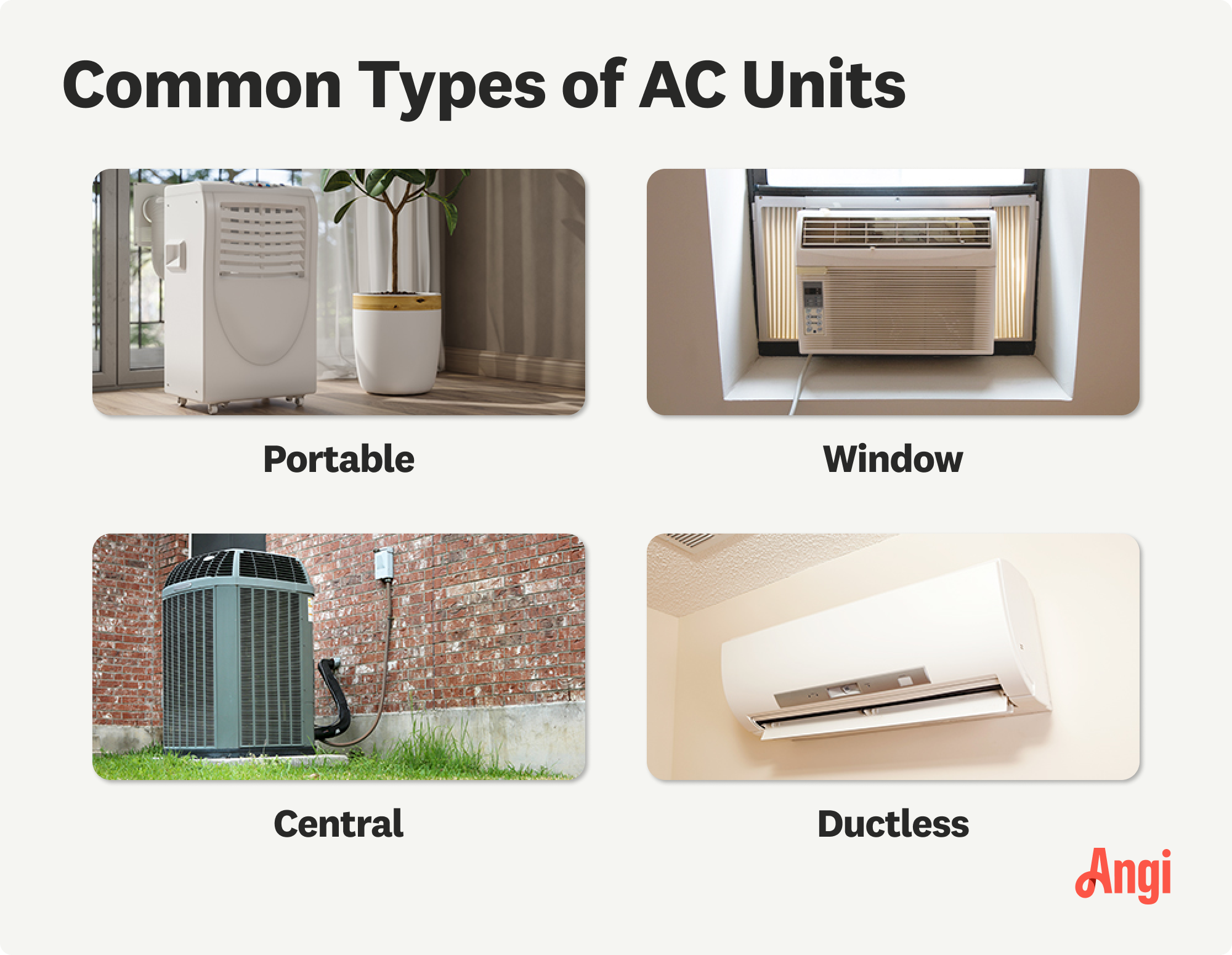
The type of air conditioner you’re replacing has a significant impact on your overall costs. Portable and window units cost less to buy and set up, while central AC is much pricier to purchase and install.
| AC Type | Average Unit Cost | Pros | Cons |
|---|---|---|---|
| Portable unit | $100–$500 | Affordable and easy to move around | Can’t cool large spaces |
| Window unit | $150–$800 | Budget-friendly and easy to install | Only cools one room |
| Ductless split system | $2,000–$3,000 | Doesn’t require ductwork | Not suitable for an entire home |
| Central | $2,500–$4,500 | Ideal for whole-house cooling | Higher installation cost |
Your AC unit’s size is another big cost factor. Depending on the type of air conditioner you have, you might see its size listed in tons or British Thermal Units (BTUs). The higher the number, the more cooling power the unit has—and the more it will cost.
There are multiple factors to consider when choosing an AC size, including your home’s square footage, the number of windows in your house, and the quality of your insulation. If you need help selecting a size, contact an AC installer near you.
| AC Tonnage | BTUs | Average Unit Cost |
|---|---|---|
| 1.5 | 18,000 | $1,300–$4,000 |
| 2 | 24,000 | $1,500–$5,000 |
| 3 | 36,000 | $2,000–$5,500 |
| 4 | 48,000 | $2,600–$6,200 |
| 5 | 60,000 | $2,800–$6,800 |
An AC unit’s energy efficiency also impacts its cost. Highly efficient models—which require less energy to cool your home—are more expensive than less efficient units. You can learn more about an AC unit’s efficiency by checking its Seasonal Energy Efficiency Ratio (SEER) or SEER2 rating.
Before buying a new AC unit in Washington, D.C., make sure it complies with the District’s HVAC efficiency standards:
| Size of AC Unit | Minimum SEER Rating | Minimum SEER2 Rating |
|---|---|---|
| Less than 45,000 BTUs | 15 | 14.3 |
| More than 45,000 BTUs | 14.5 | 13.8 |
If you live in one of Washington, D.C.’s many apartments, condos, or row houses (rather than a single-family home), it could be difficult for your installer to access or work on your air conditioner.
For example, if the unit is on the roof of a multi-story building, it will take the pro more time to reach it, and they’ll have to take additional safety precautions to do so. As a result, they may charge more for labor.
In Washington, D.C., the law states that air conditioning work must be performed by a qualified professional. Here’s what to keep in mind when hiring someone.
You’ll need the help of a licensed HVAC contractor to replace most types of air conditioners—including ductless mini-split systems and central AC—in Washington, D.C. They should hold a current license from the District of Columbia Board of Industrial Trades.
Although you don’t need a pro to install a portable or window air conditioner, hiring a pro to install a window AC unit can be beneficial.
In Washington, D.C., you need a permit to install or replace air conditioning systems. As a homeowner, you can’t pull this permit yourself—it must be obtained by a licensed HVAC contractor.
According to the D.C. Department of Buildings, the permit for installing a residential central AC system (up to five tons) is $65, plus a 10% additional fee.
Washington, D.C.’s sales tax rate is 6%, which increases the cost of your AC unit. On a $3,500 central AC system, this would add an extra $210.
Upgrading to a more energy-efficient AC unit? You may qualify for a rebate from the DC Sustainable Energy Utility (DCSEU). If you meet the program’s requirements, you can get $150 back for a window AC unit or $250 back for central AC.
It’s not overly common to tip HVAC technicians in Washington, D.C., but you might choose to—especially if they provide outstanding service or visit your home on a weekend or holiday.
Before you decide to tip, reach out to the HVAC company and confirm that employees are allowed to accept tips. If so, 20% is standard, but if your bill is steep, then $20 to $30 per worker is a good alternative.
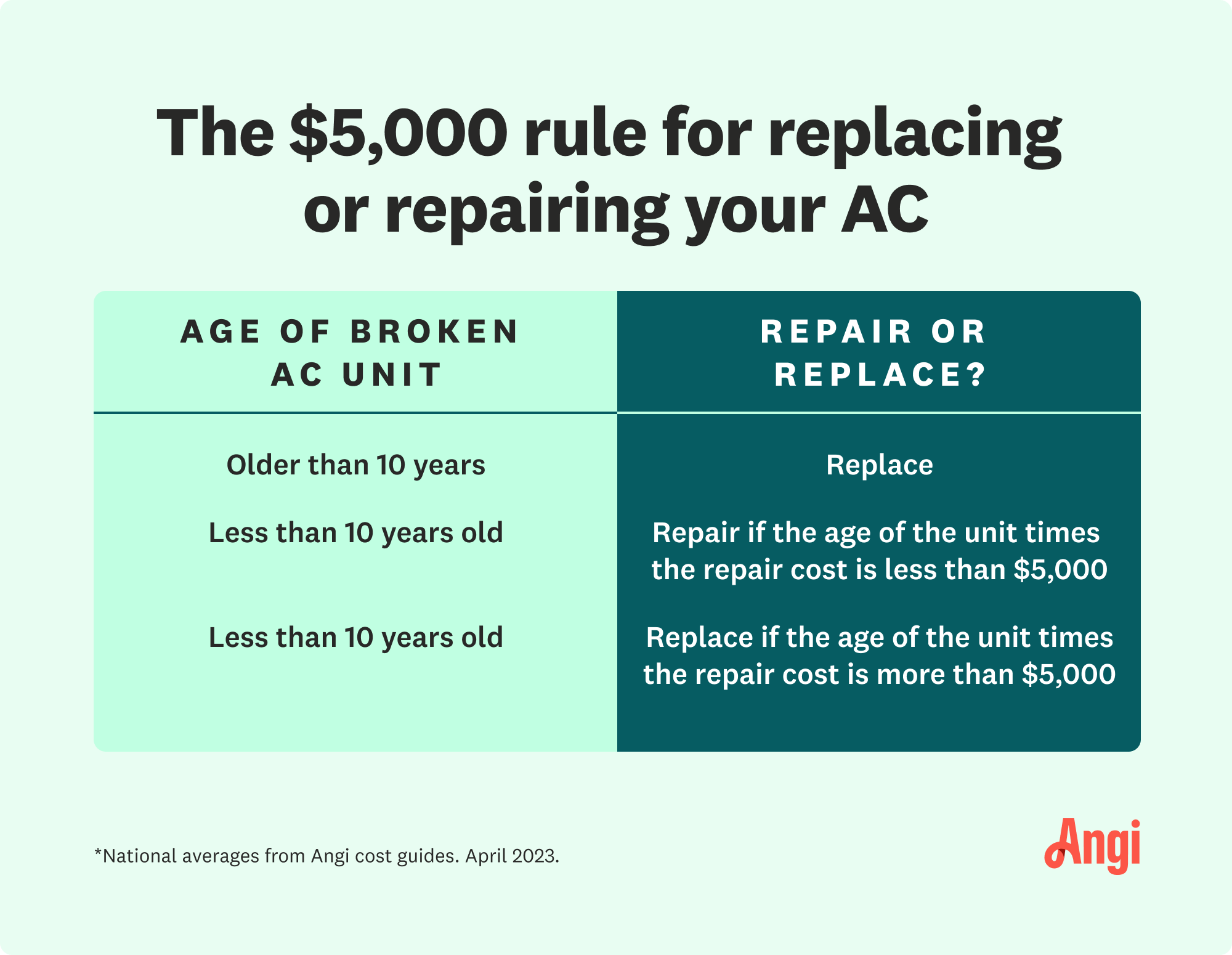
An AC unit can provide much-needed relief during Washington D.C.’s hot and humid summers, so upgrading your current system can definitely increase your property's value and boost its appeal in the eyes of prospective buyers.
However, since Washington, D.C., also experiences freezing winters, you’ll see a better return on investment (ROI) if you upgrade other parts of your HVAC system (like your heat pump or furnace) as well. On average, a new HVAC system increases your home’s value by 5% to 7%.
Home is the most important place on earth, which is why Angi has helped more than 150 million homeowners transform their houses into homes they adore. To help homeowners with their next project, Angi provides readers with the most accurate cost data and upholds strict editorial standards. We survey real Angi customers about their project costs to develop the pricing data you see, so you can make the best decisions for you and your home. We pair this data with research from reputable sources, including the U.S. Bureau of Labor Statistics, academic journals, market studies, and interviews with industry experts—all to ensure our prices reflect real-world projects.
Want to help us improve our cost data? Send us a recent project quote to [email protected]. Quotes and personal information will not be shared publicly.
From average costs to expert advice, get all the answers you need to get your job done.

Discover the cost to install ductwork. Learn about average prices, cost factors, and tips to save money on your ductwork installation project.
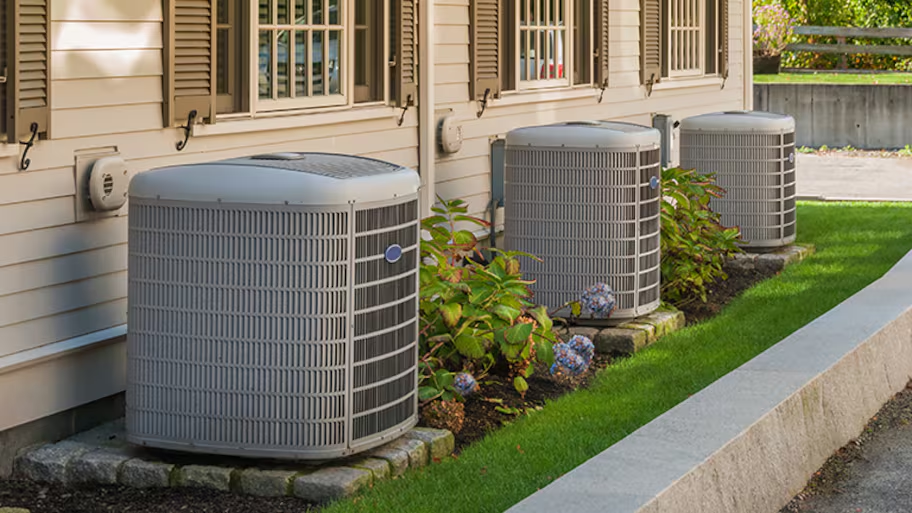
HVAC replacement costs depend on a lot of factors, like unit type, size, and labor. See what you can expect to pay for HVAC replacement here.

What you’ll pay in Columbus, OH, for furnace repairs depends on many factors. Here’s a breakdown of what can go wrong and the cost to fix those issues.

Explore the most common HVAC duct types, from flexible to sheet metal to fiberglass, and learn about their pros and cons.
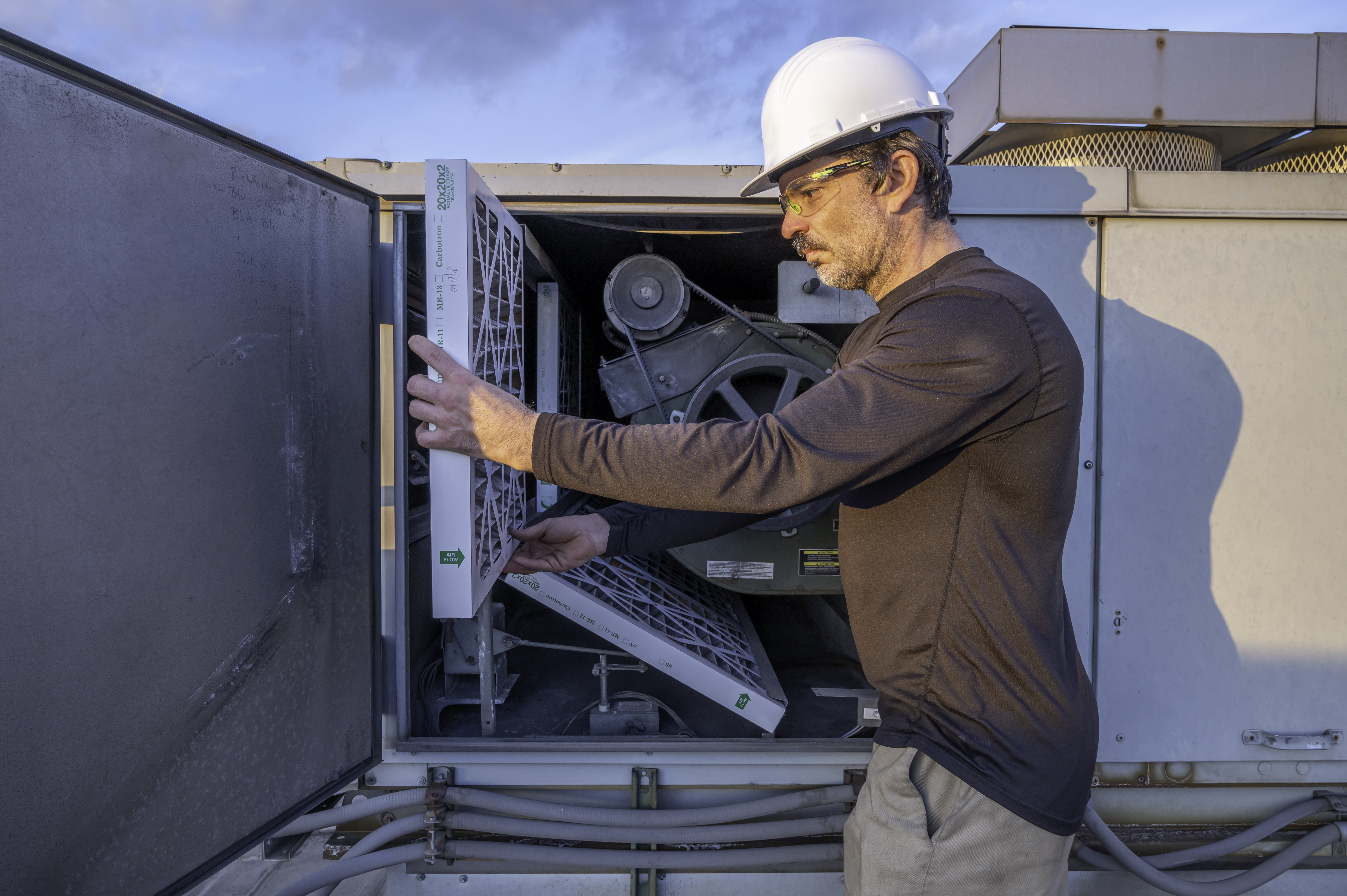
Wondering who to hire for swamp cooler installation? Learn when to call an HVAC contractor, electrician, or handyperson, and what to expect.

Learning how to secure a window AC unit will avoid personal injury and damage to your home. It will also protect against theft and break-ins.